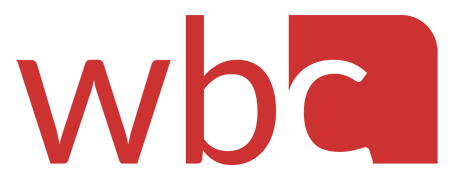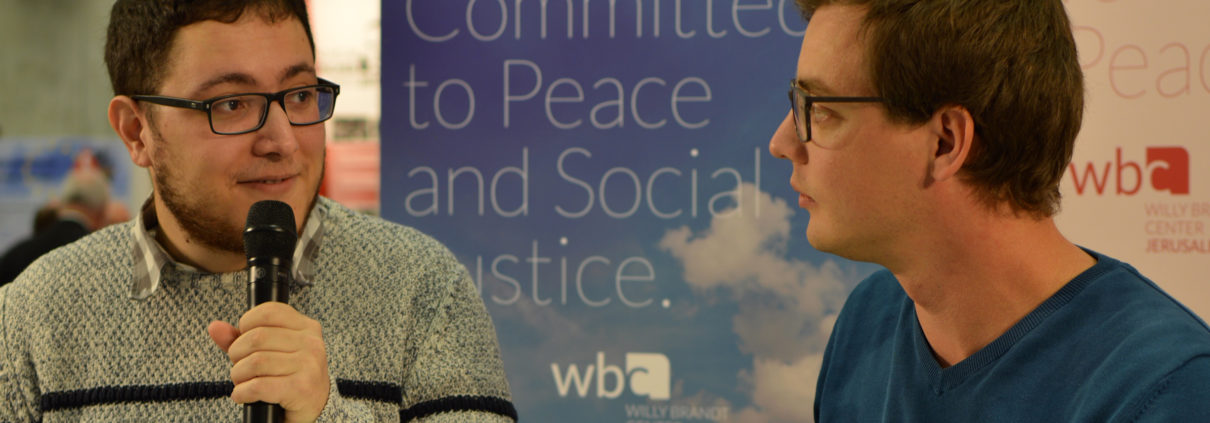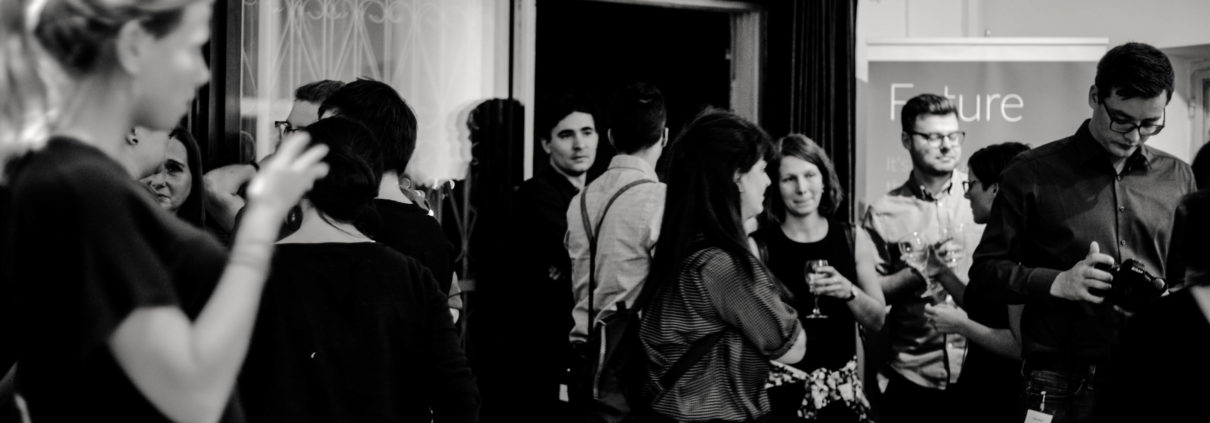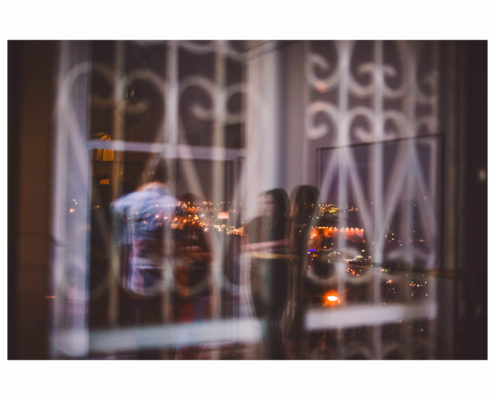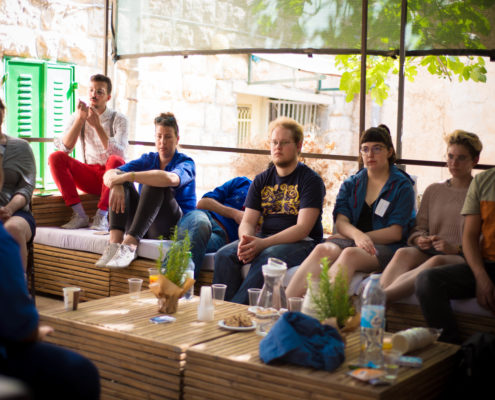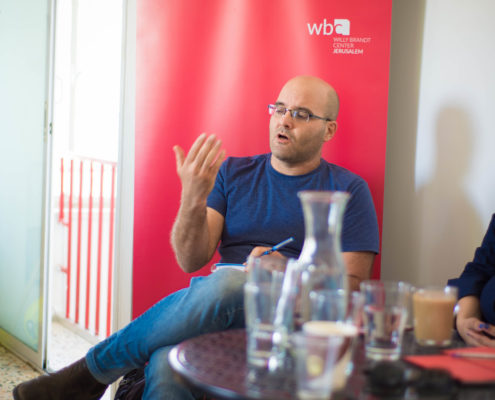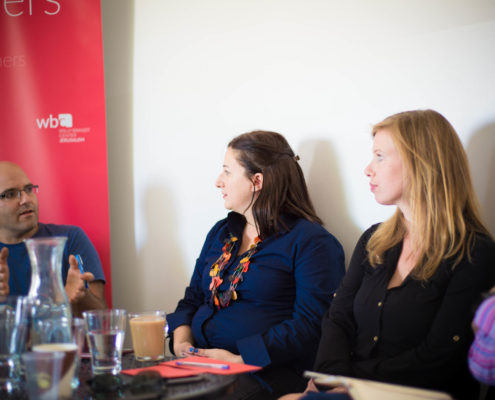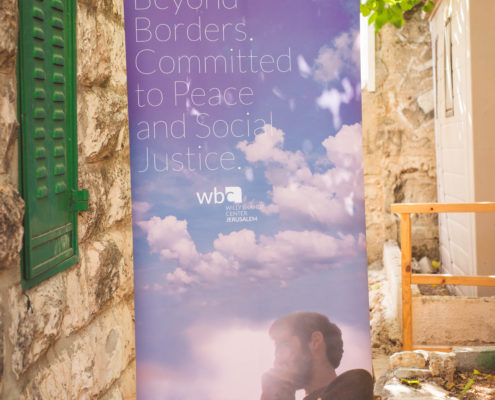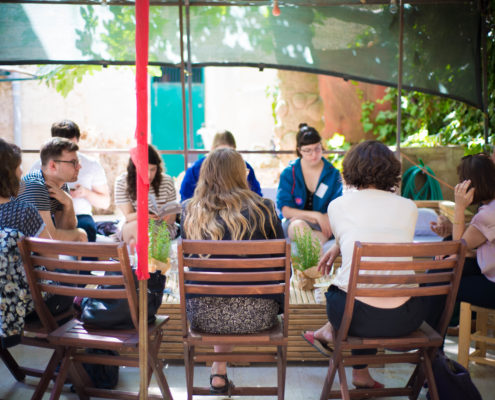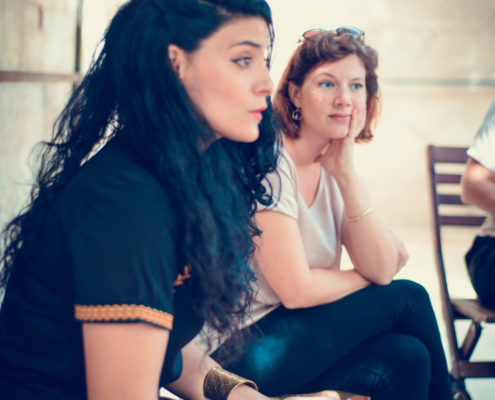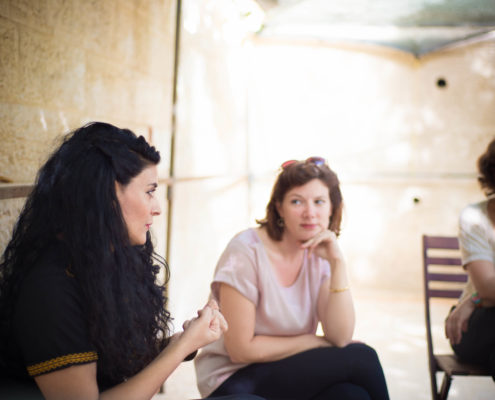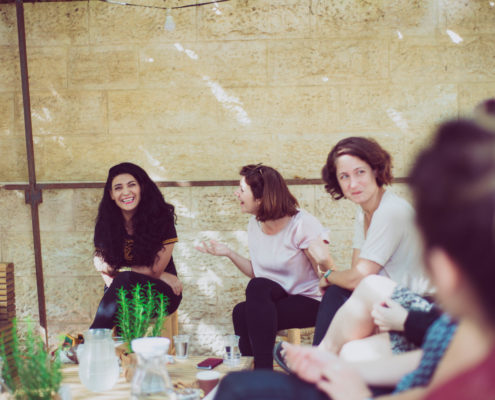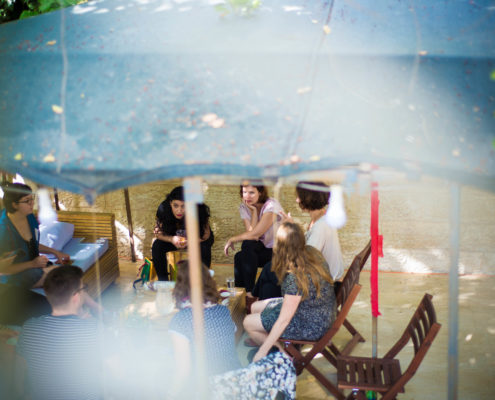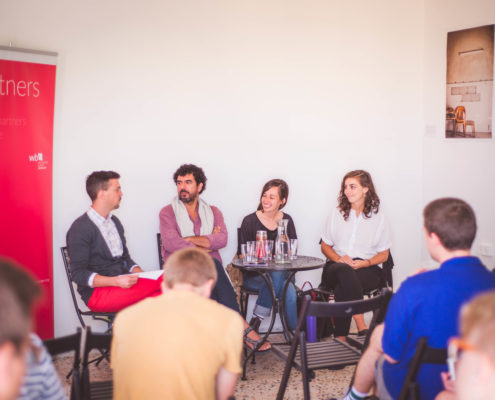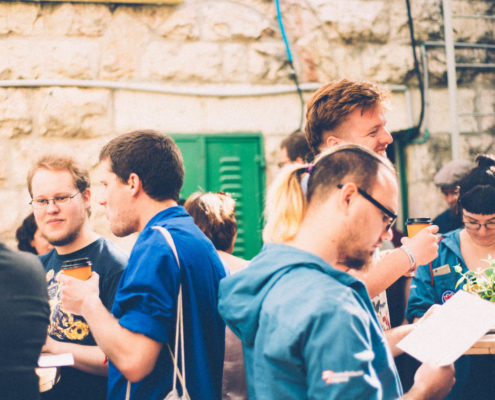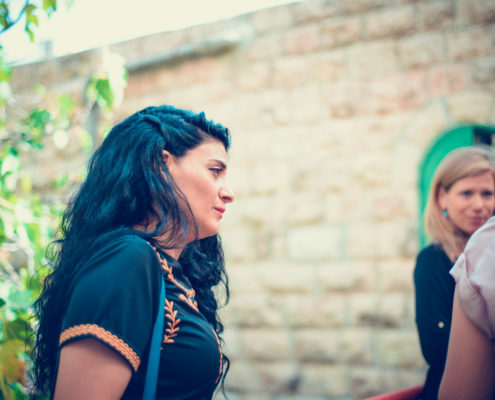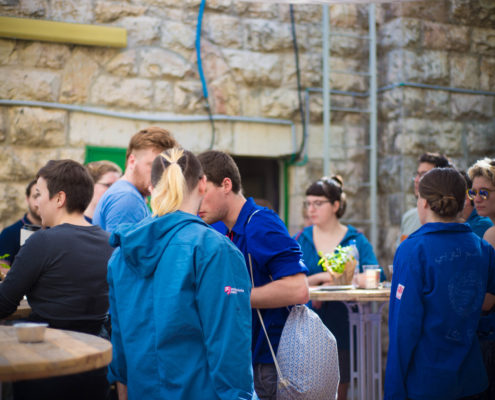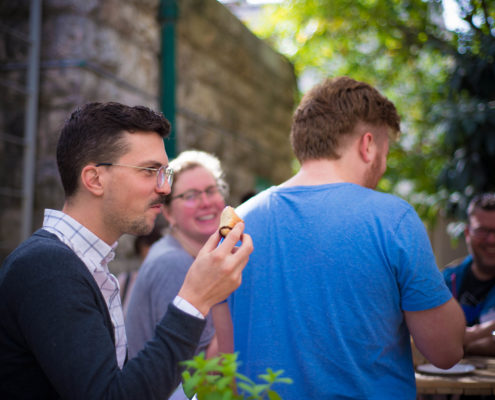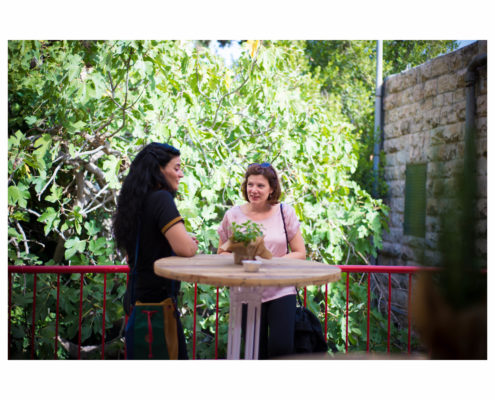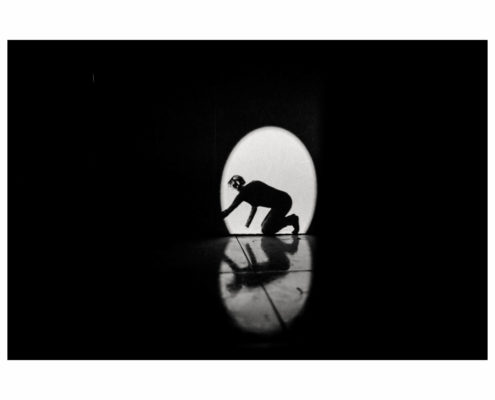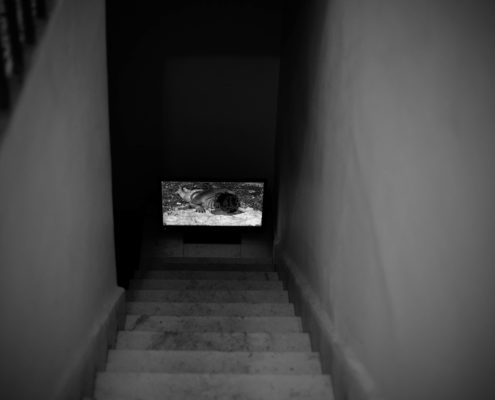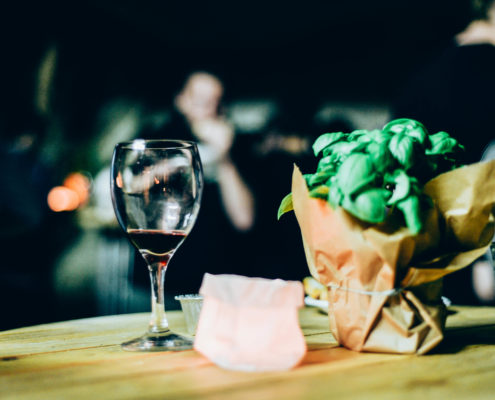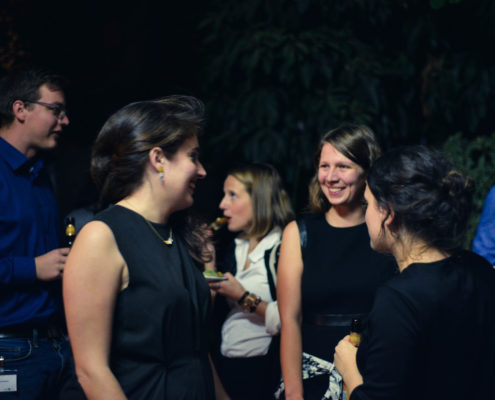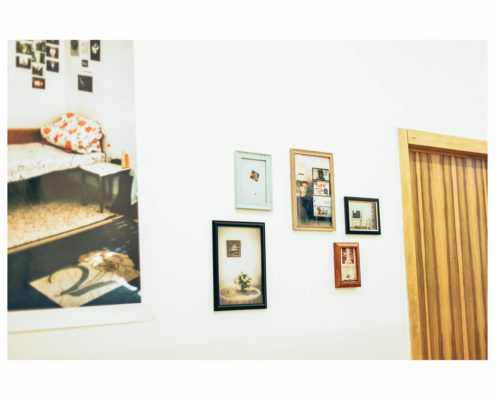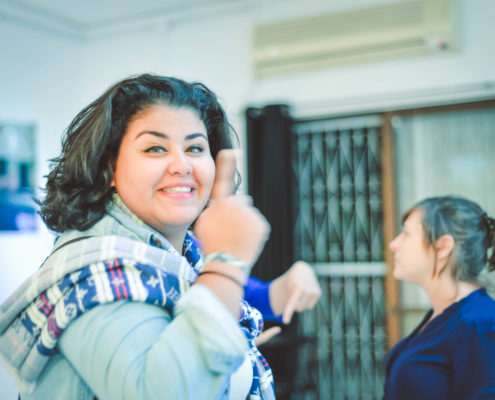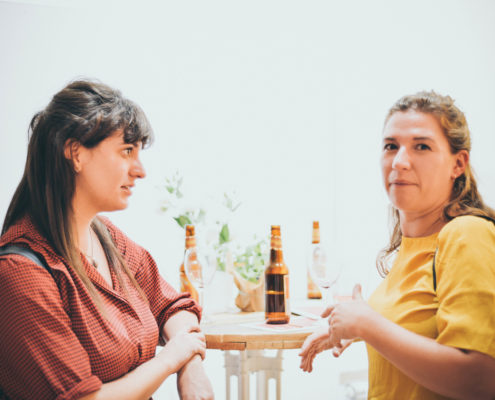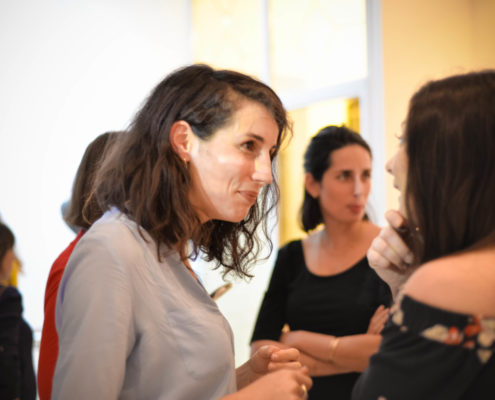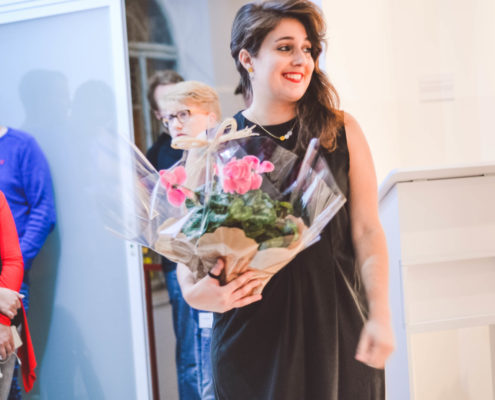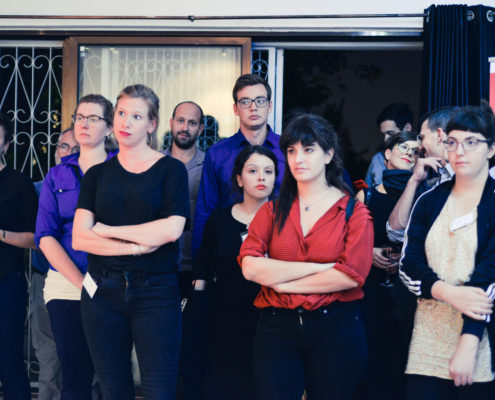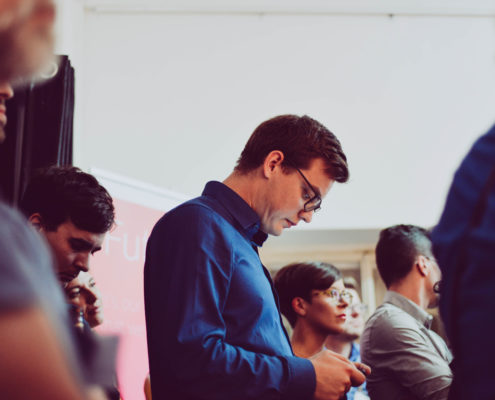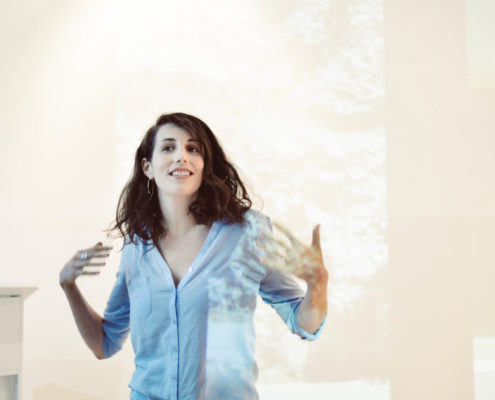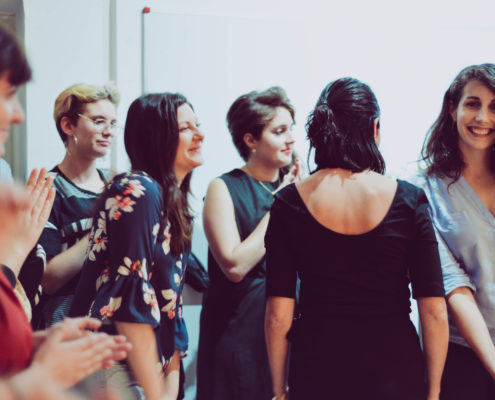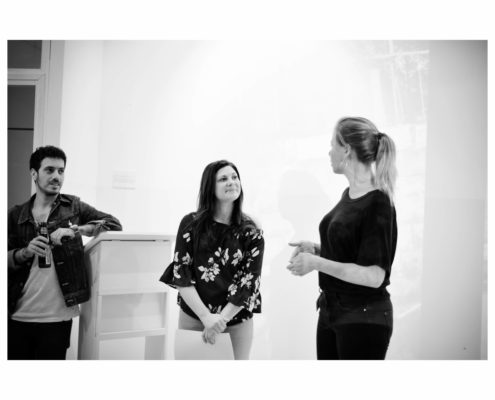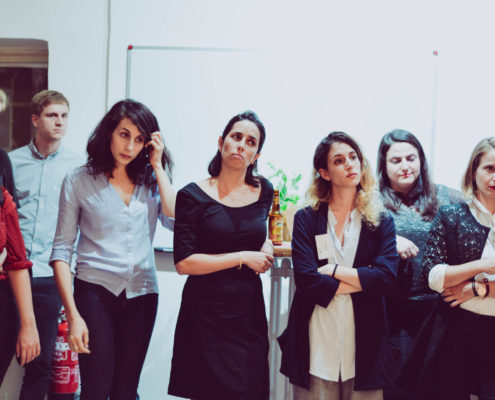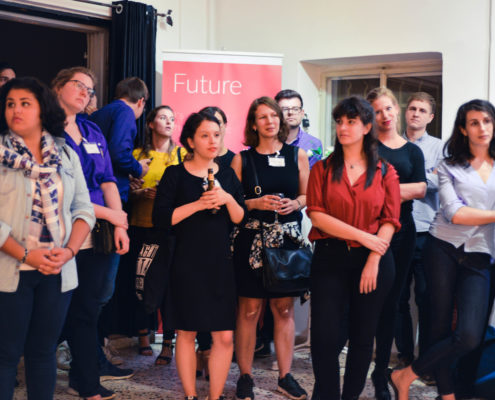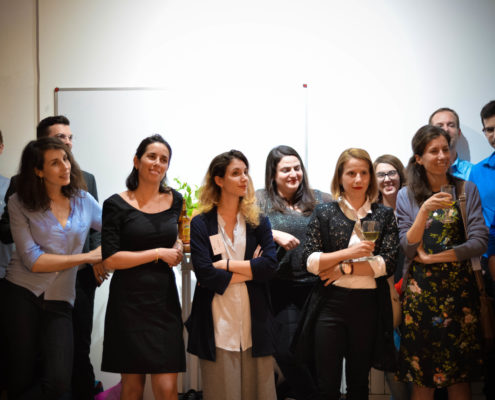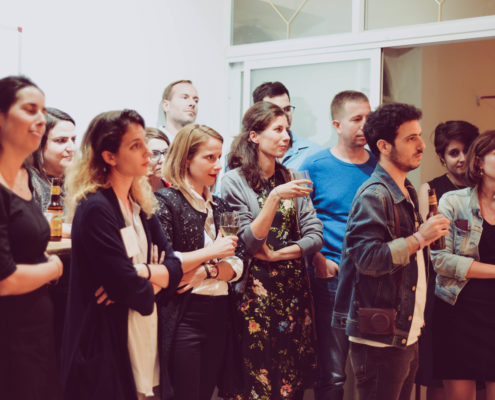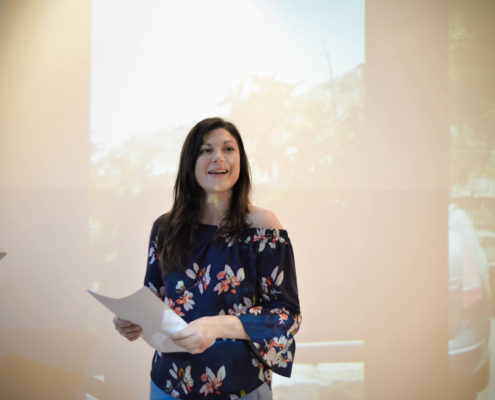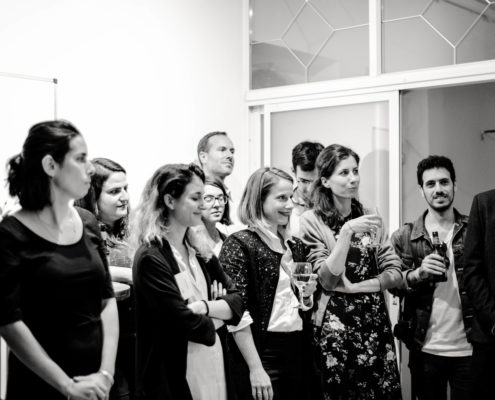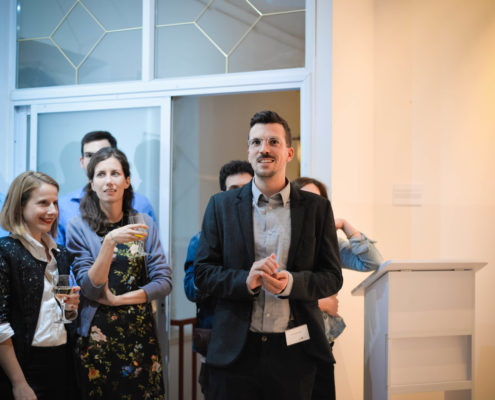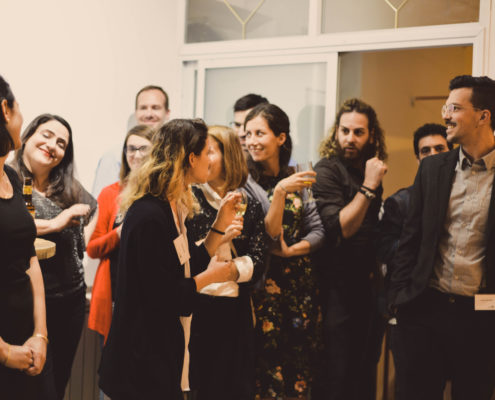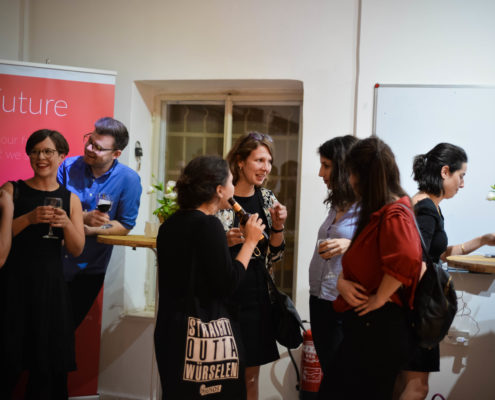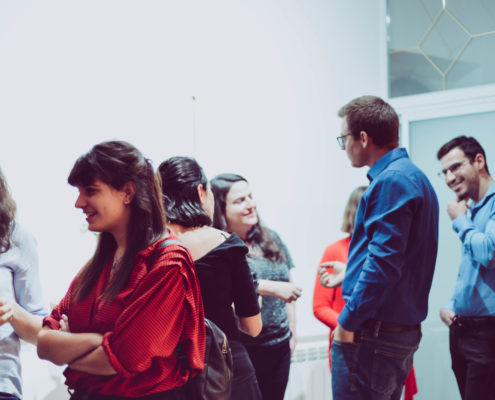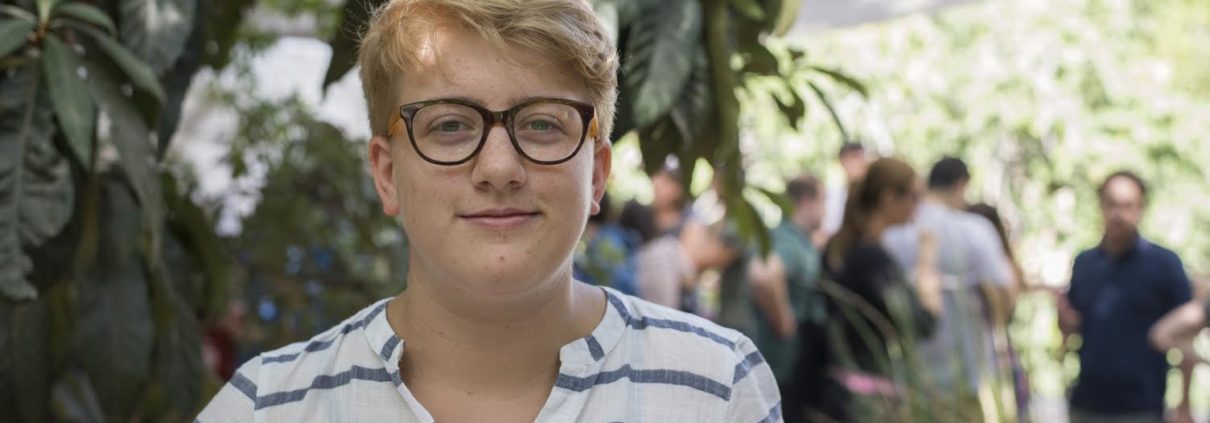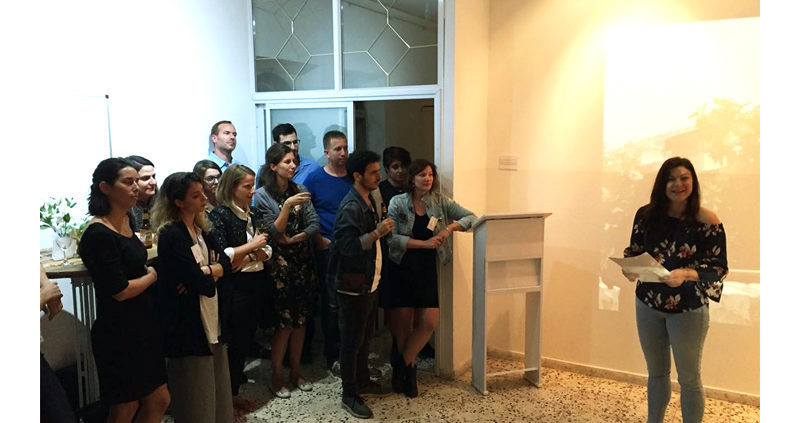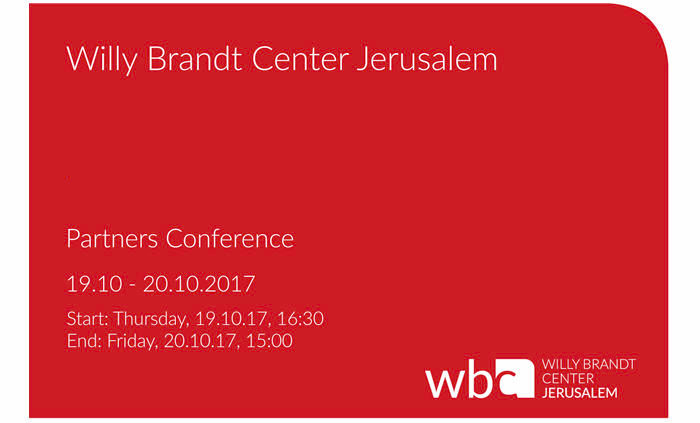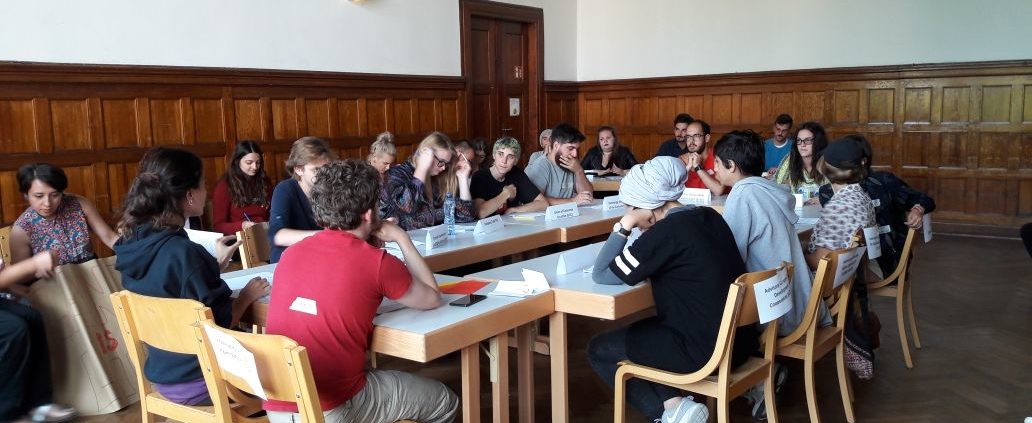Mitte August hat Michelle Reißmann aus Burkhardtsdorf im Erzgebirge ihren weltwärts-Freiwilligendienst im Willy Brandt Center Jerusalem begonnen. Ein Jahr lang wird die 19-jährige das Team des WBC unterstützen und die Arbeit in Jerusalem mitgestalten. Im Interview stellen wir unser neues Teammitglied vor.
Michelle, seit Mitte August leistest du deinen Freiwilligendienst im WBC. Wie hast du die ersten beiden Monate erlebt?
Als unglaublich spannend. Kein Tag verlaeuft wie der andere und schon gar nicht wie geplant, was mir aber auch sehr viel Spaß macht.
Die Arbeit im Center gefaehlt mir unglaublich gut, genauso wie Jerusalem als Stadt, die sich kaum in Worten beschreiben laesst.
Was hat dich motiviert, dich für das WBC zu bewerben? Was fasziniert dich an diesem Projekt?
Das WBC habe ich vor ein paar Jahren auf meiner ersten Juso-Veranstaltung auf Bundesebene kennen gelernt. Seit dem war ich fasziniert von dem Projekt und der Vision dahinter, dass fuer mich deutlich wurde: Da will ich unbedingt hin.
Am meisten hat mich dabei die Einzigartigkeit des Projekts begeistert sowie die Herangehensweise: Denn wer, wenn nicht die Jugend, sind Hoffnungstraeger fuer die Zukunft.
Die Arbeit des WBC ist wertvoll und fuer mich zu 100% unterstuetzenswert. Und dies nicht nur im Bezug auf den Konflikt, sondern auch bei Themen wie soziale Gerechtigkeit, Gentrifizierung, Gleichstellung und viele weitere leistet das Center einen bedeutenden Beitrag.
Du bist seit Anfang 2014 bei den Jusos Sachsen aktiv und bist dort auch zum ersten Mal mit dem Thema Israel und Palästina in Kontakt gekommen. Wie kam es dazu und was hast du noch bei den Jusos gemacht?
Die Jusos haben bekanntermaßen eine breite außenpolitische Beschlusslage und internationale Vernetzung. Dadurch, dass mein Interesse an Weltpolitik schon immer groß war, ist es auf Dauer kein Zufall im Meinungsbildungsprozess meines Jugendverbandes in Kontakt mit „dem Nahostkonflikt“ zu kommen.
Urspruenglich komme ich von den Jusos Erzgebirge, die eine kleine, aber doch durchaus existierende Juso-Gliederung darstellen. Von Anfang an hieß es Learning-by-doing sowohl auf Kreis als auch auf Landesebene. Im letzten Jahr wurde ich dann zur Vorsitzenden meines Juso-Kreisverbandes gewaehlt und habe die letzten knapp zwei Jahre im SPD-Kreisvorstand Erzgebirge gewirkt.
Politisches Enagement und Arbeit in meinem Verband sind so seit laengerer Zeit fester Bestandteil meines Lebens.
Als Landeskoordinatorin der Juso Schüler*innen- und Auszubildendengruppe in Sachsen hast du dich mit Bildungspolitik in Deutschland befasst. Im WBC arbeiten wir mit Partnern im Bereich der Nonformalen Bildungsarbeit zusammen. Inwiefern unterscheidet sich das, von dem was du aus Deutschland kennst.
Erfahrungen mit der Arbeit auf Juso-Landesebene konnte ich in den letzten zwei Jahren als Landeskoordinatorin sammeln. Dabei lag unser Schwerpunkt in dieser Zeit besonders auf der Einwirkung auf die Novellierung des saechsischen Schulgesetzes und dem Problem des Leher*innenmangels. Das sind natuerlich alles Bereiche und Themen, die sich im formalen Bildungssektor befinden.
Die Herangehensweise unserer Partner*innen ist eine grundsaetzliche andere, was den Vergleich umso schwieriger macht. Wobei sich fuer mich formal und nonformal gerade deshalb niemals ausschließen sollten, sondern ergaenzen.
Du arbeitest in Israel und Palaestina. Das bedeutet jeden Tag Grenzen zu passieren. Wie ist es für dich, zwischen zwei Welten zu leben?
Eine grundsaetzliche neue Erfahrung. Fuer jemanden, die im Schengen-Raum aufgewachsen ist, sind formal aufwendige Grenzuebertritte an sich von vornherein neue Erfahrungen.
Das ganze beginnt schon beim Visa-Prozess und endet bei regelmaeßigen Passkontrollen. Dass ich aber das Privileg habe, zwischen diesen Welten frei wandeln zu koennen, lerne ich jedoch umso mehr zu schaetzen.
Worauf freust du dich im kommenden Jahr am meisten?
Es gibt eigentlich nichts, auf das ich mich nicht freue!
Das Interview mit Michelle führte Tobias Pietsch im Oktober 2017.
Foto: Tobias Pietsch/WBC
